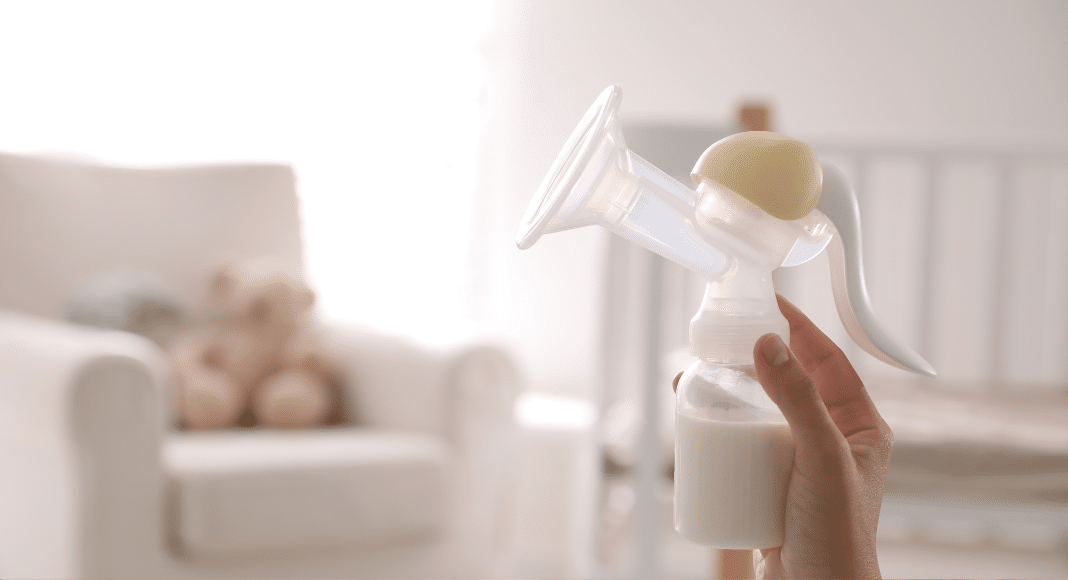 Disclaimer: I wrote this post for anyone curious about natural term weaning or what is often in the Western world called extended breastfeeding. Writing this post was something I’ve been debating for months, as judgment on both sides can hurt, and like most people, I don’t like being laughed at or called names. I also thought of publishing anonymously. I’m choosing to include my name, so anyone curious can feel less alone and have a face to go with the story. Talking face-to-face with another mom who chose similarly was a highlight for me and kept us going on our breastfeeding journey during a rough patch.
Disclaimer: I wrote this post for anyone curious about natural term weaning or what is often in the Western world called extended breastfeeding. Writing this post was something I’ve been debating for months, as judgment on both sides can hurt, and like most people, I don’t like being laughed at or called names. I also thought of publishing anonymously. I’m choosing to include my name, so anyone curious can feel less alone and have a face to go with the story. Talking face-to-face with another mom who chose similarly was a highlight for me and kept us going on our breastfeeding journey during a rough patch.
For the mamas and parents who formula-fed, I hope you and your family were supported and affirmed on your journey and that you never felt judged. If this post will be triggering for you, I hope you feel total freedom to skip it! Parenting is hard enough without the added pressure to do a certain thing or feel a certain way! My mom once said that every child is like a flower, daffodils need different amounts of sunlight, shade, and types of nutrition than wildflowers. Similarly, every parent is different, and we grow and evolve even from raising one child to the next! Your baby is happy? Your baby is growing, rock on! I hope any reader sees the humor in our journey and can relate to it in some way, even if their process was totally different than ours.
What made us decide to keep breastfeeding?
I may have been one of the least likely candidates for natural term weaning. I was formula fed from the first month on, like my siblings and many children of the early 90s. While studying in my undergraduate program, I took a required child psychology course, and one of the topics was parenting styles. An attachment-style mama from the U.K. was interviewed while breastfeeding her four and six-year-old kids. “Gross!” I thought to myself. “Who would do that?” So with that mindset prior to parenting, what changed for me? Why did we choose to “natural term” or “extended” feed?
A big reason was that I suffered from severe eczema starting at age five. It became so bad that during my teen years, I had to stop wearing any dyed or synthetic fabrics, fragrances in detergent, makeup, perfumes, and other items. During outbreaks, large red rashes that cracked and bled, hives, and a nonstop itching plagued me and kept me awake at night. Thank goodness the worst cleared up before prom or senior pictures! One trigger among many (pets, seasonal, dust, among countless others) for my outbreaks was dairy. I noted that for the future, as I always wanted to be a parent one day.
Decades later, when we had our son, Blake, I noticed he also showed signs of having sensitive skin. He had a six-month case of cradle cap that covered his entire scalp and would crust and bleed without nightly massages and coconut oil treatments. He would also similarly break out with any fragrances, even essential oils. Learning about gut health and how the transfer of antibodies from mom to baby in breastfeeding may help a child delay onset or even prevent full-blown eczema like I had suffered from and still do, in my own children was a big motivating factor for me to breastfeed and see a lactation consultant for early latch issues.
Another reason we chose to continue the breastfeeding relationship and eventually continue to let Blake decide when he wanted to wean was that Blake had a severe speech delay, so much so that he could only say four words by his third birthday. (The average at this age would be between 250-1,000 words). We did speech therapy two times per week, which helped with signing and practicing ways to increase sounds. But I could tell that Blake was bothered by his limitations. In social settings, Blake would cling to me or his dada. Anytime a stranger or even a known acquaintance greeted him, he would smile back and shyly say his multipurpose word “on,” like a salutation, while pointing to a light fixture or the sun in response. He loved being able to say and pair “on” with actions like turning on lights, water faucets, or the car. He would use it so much that it didn’t always apply. He could not say “hello, hi,” or any words beginning with the letter “h.”
Social settings caused Blake’s heart rate to elevate, and sometimes he would run away when overwhelmed. He would often sign “milk” just for a safe way to retreat. Our breastfeeding breaks gave Blake a chance to step away one-on-one with me, recharge and feel calm again. His tense body would relax as he had some milk and held my hand. Then, he was ready to get back out there and face the world.
Today at four, Blake runs up to strangers and introduces himself on the playground. He speaks hundreds of words, rides the bus by himself, does front flips, sleeps in his own bed at night, and thanks to almost three years of hard work on targeted muscle strengthening and development via speech therapy and public preschool, he has very few remaining speech challenges. The social anxiety he used to display is totally gone. The last year of breastfeeding was really only a two-minute feed to wake up or before bed. Blake fully weaned at about three years and ten months. I’m thankful breastfeeding was a way for us to bond and a safe place for him when he needed it most.
What are some challenges with natural term weaning?
It can be hard to take time away/overnights. We were blessed with families who each had a grandparent willing to sacrifice uninterrupted sleep to provide the environment Blake was accustomed to. They would sleep in the room or beside him the way that my husband and I did. The longest away time we did was 3-4 nights away while still feeding. If a breastfeeding parent will be gone months at a time (military or other, this could be difficult). Another challenge is the amount of time invested; it is quite literally thousands of hours. Our abysmal state of maternity and paternity care in the U.S. also makes breastfeeding for any duration a challenge. I was privileged to have both a supportive employer who outfitted a breastfeeding area just for me and the option of pausing work altogether when we felt it best for our family.
If my child is reaching the average term and we don’t feel ready to wean, what are some supports for us?
The Facebook group, Breastfeeding older babies and beyond, was a huge help to me. It’s global, with so many perspectives from around the world. Australia, the U.K., and many warm cultures tend to normalize breastfeeding more than we do here in the U.S., though at least it’s now legal to feed openly in all 50 states. Peer-to-peer wisdom and advice sharing were critical for me in feeling supported when I felt alone.
What should I tell people who think my choice is weird?
I had a loved one laugh at me and mock my decision. Fortunately, they aren’t a parent yet. Hopefully, they would at least now agree that my child isn’t a freak because of our feeding choice. He’s well adapted according to teachers and mentors and seems to have a healthy appreciation and view of the human body and all the cool things it does.
How can I support someone who is deciding what’s right for their family or who has said they feel judged for their feeding choices?
If asking a question, stop and consider why you are asking first. So many people have asked questions out of curiosity, and to me, that’s wonderful. Like, “I’m curious what natural term weaning has been like?” On the other hand, judgmental phrasing like, “Are you STILL breastfeeding?” can really hurt. Similarly, if you’re asking a mom, “Why are you formula feeding?” You’re implying that something is wrong with that choice. A mother/the parenting team can decide their why for any type of reason. If you get a pained look or a sense that this is not the time, it’s probably best to back off. Some moms don’t breastfeed due to childhood trauma surrounding their body, or maybe they have low supply, cancer, or surgery that doesn’t make breastfeeding an option. Some moms simply prefer splitting the feeding time between themselves and a partner, and formula allows that freedom.
Just for fun, here are some uses I found for breastmilk that are “off label.”
Bee stings. The first summer, while breastfeeding, I treated a sting on my toe as normal. I remove the stinger, added creams, and carried on. About three days later, the itch finally went away. The following summer, I read that breast milk could smooth skin rashes and minor cuts. After stepping on a bee once again in our yard (we let dandelions grow for pollination and to support the bee population), I took out the stinger and instantly applied breast milk. Within 2 hours, all swelling, redness, and itching were totally gone. I also applied it to scrapes Blake would get instead of ointments. Typically the breast milk reduced healing time by a full day or even more. At this point, people probably assumed I had turned full-blown hippie mom, whipping the boob out on trails and giving any cuts a quick shot of milk before Bandaids. Fortunately, I didn’t care by this point.
A final note, while natural term weaning was the right choice for our family and my older child, I am expecting again in July. We’ll decide what feeding looks like again based on who the child is and who I become. If I feel touched out, unable to produce, have complications, or it simply isn’t working, I’m not locked into a breastfeeding duration or goal beyond colostrum in the hospital. I’m tapping into my mom’s flower analogy. If this child differs from Blake or I find myself being in a different season, I’m giving myself the freedom to change it up.
Feeding a child, especially as anyone who has pumped while at work or for long amounts of time (been there, not fun!) knows, all feeding takes work no matter the method! Time and love go into methodically packing formula, preparing a bottle, and feeding the baby just the same as wandering off to find a quiet place to breastfeed, storing pumped milk to keep it cool, or whatever other work is needed to keep your baby growing and happy! May we all support and affirm each other on this quest to grow the littles in our lives, whatever methods are used.








